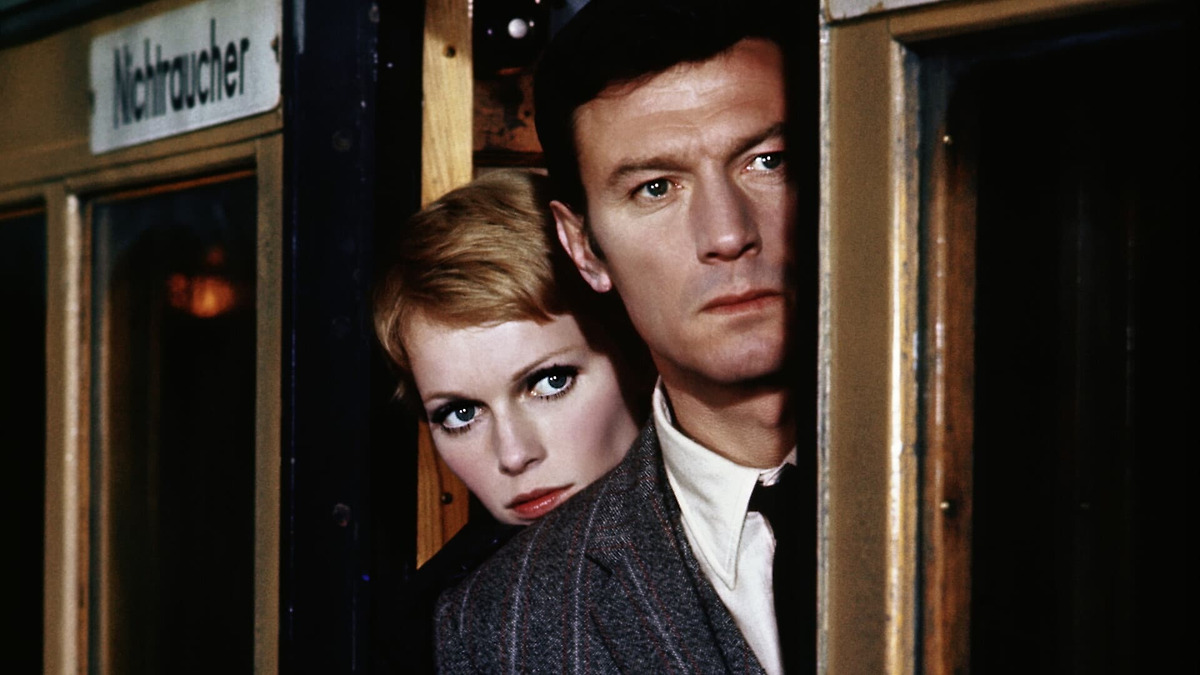Matthew McConaughey runs after Kate Hudson‘s taxi in How to Lose a Guy in 10 Days. Will Smith is a professional dating coach for men in Hitch. A rich, reticent Richard Gere shows a prostitute the high life in Pretty Woman. Jason Segel cries in the fetal position in Forgetting Sarah Marshall. Which one of these is different from the rest?
In 2008, Forgetting Sarah Marshall was released and introduced audiences to a new type of leading man in a rom-com. Segel’s Peter Bretter doesn’t have the calm, collected, too-cool-to-care-until-he-does demeanor that many men who populate rom-coms have. No, in Forgetting Sarah Marshall we see Jason Segel cry…a lot. He cries naked in the presence of his soon-to-be ex-girlfriend; he cries so loudly in his Hawaiian hotel suite that people think there is a hysterical woman in his room; he cries when he has to stab a pig in preparation for a luau; he even cries when he drunkenly sings a song from The Muppet Show at a piano. He cries, unabashedly, unashamedly, never giving the audience even the slightest notion that he is one of those guys — the guys who need to present tough, the guys who view showing emotion as a weakness, the guys who want to be seen as the strong, silent type. Instead, Segel animates a man who is shattered for all the world to see.
Among men, Forgetting Sarah Marshall is a rom-com favorite for a gender who typically claims not to enjoy the genre. There are many reasons for this: the hilarious storyline, the fact that its central character is a man — not incredibly common for rom-coms, and the laughable quotes — “I’m gonna get herpes just from sitting on this couch.” But there’s another reason why the film lands so well with male audiences: the freedom that can be found in Segel’s subversive performance. Not often do men get to see an emotional, broken, insecure male character and be able to root for him and laugh with him. As is the case in many movies from the genre, men instead have to look at faces — and physiques — like Ryan Gosling in Crazy, Stupid, Love, see men of great opulence such as Mr. Darcy in Pride & Prejudice, or have to watch Hollywood-esque smooth operators like George Clooney in Ocean’s Eleven. Often, men aren’t treated to seeing a regular man on the big screen, especially not in the rom-com universe. And whether male viewers like to admit it or not, there’s a catharsis to seeing a man in a movie shed copious amounts of tears over a breakup. Most men are Segel in a world that’s telling them to look like Chris Hemsworth, be cool like Brad Pitt, and be tough like Sylvester Stallone.
The Story of ‘Forgetting Sarah Marshall’
At the beginning of the film, we see Segel’s character get broken up with out of the blue. His five-year relationship with the famous actress, Sarah Marshall (Kristen Bell), crashes down before him within minutes. At first, he resorts to hookup culture to mend his heart. But just after having sex with someone, he reminisces on his memories with Sarah and begins to cry, all the while, the woman he was just intimate with is still lying beside him. Still, men in his orbit insist that he engage in meaningless sex to get over Sarah, but Segel’s Peter finds the one-night stands to be empty and only highlight the chasm in his heart that his breakup has created.
Finally, needing to get away from everything that reminds him of Sarah–basically, his entire life in Los Angeles– he goes to Hawaii in an attempt to heal. However, Peter discovers that Sarah is staying at the same hotel with her new boyfriend, rock star and sex god, Aldous Snow (Russell Brand), in tow. Laid-back front desk clerk, Rachel (Mila Kunis) comes to Peter’s rescue after he’s obviously taken aback by the odds that he and Sarah are staying at the same hotel and that she already found someone else. Peter begins to spend time with Rachel, and what begins as Rachel spending time with him because she feels sorry for him, blossoms into a genuine connection. Meanwhile, Sarah and Aldous’s relationship begins to fizzle as she realizes that he’s not someone who believes in commitment and that he’s not as deep as his persona suggests.
The film ends in typical rom-com fashion: realizations are had, a grand act of love incurs, and the right people end up together. But throughout the film, viewers are constantly reminded just how Forgetting Sarah Marshall‘s Peter Bretter is a refreshing break from the expected male character in a rom-com.
In the movie, we see Peter get his ass beat; once on the beach when Rachel confronts her ex and Peter tries to mediate only to get slapped in the face, and, as every romantic comedy has, in the grand act of love, Peter removes a topless photo of Rachel from a local bar even though he knows it’ll result in him getting beat up, which it does. He even faints when Aldous’ leg bleeds after removing a piece of coral from it. Most men don’t like to show weakness, or, at least, perceived weakness. Peter doesn’t internalize such qualms. In so many movies where men have to act unaffected, Segel puts any male ego aside and allows himself to be seen as someone who would lose a fight to a burly bar owner. In the famed words of Zsa Zsa Gabor, “Macho does not prove much.”
The Different Types of Men
Jack McBrayer‘s character, Darald, is a man who’s uneasy about having sex for the first time on his honeymoon. Forgetting Srarah Marshall gives space to someone like Darald to vent his sexual insecurities and anxieties without emasculating him for doing so. When Aldous suggests that Peter could date both Rachel and Sarah, Peter admits that, besides being completely uninterested in such an arrangement, he probably doesn’t have the sexual competency to pull off such a situation. A bar scene shows an intoxicated Peter collecting the fruit from his cocktails. At one point, he pulls a banana from his drink and, in obvious reference to a penis, jokingly says “not us” about himself and a stranger next to him. In most movies, as in life, men feel a need to exude sexual prowess. Yet, Segel’s character couldn’t care less about presenting himself as the man. His openness is one of his many refreshing characteristics.
Brand’s Aldous Snow serves an essential function in the movie; he’s the foil to Segel’s Peter. Where Peter is normal, Aldous is cool; Peter is unconfident, Aldous is brimming with self-assurance; Peter has average appeal, Aldous is constantly fawned over by women, and even one persistent hotel employee (Jonah Hill). The juxtaposition between the two men is perhaps the film’s central thesis: men don’t have to be like Aldous. The Peters of the world prove to have much more substance. In every way that Peter is the opposite of Aldous is what makes him great.
Peter Is a Refreshing Break
But Peter also is given dimension by the revelation that Sarah broke up with him because she felt he was becoming complacent in their relationship and in his life. While Sarah is shown as regretting her decision to leave Peter, it gives her a measure of exoneration when she’s able to tell Peter why their relationship wasn’t working. And in reflection, Peter is able to see that Sarah and his relationship wasn’t as golden as he liked to imagine. She didn’t get his Dracula puppet show — a project that he invested much of himself into — so she didn’t really get him. Rachel, by contrast, understood what he had created and by extension shows a capacity to understand Peter on a deeper level than Sarah was able to.
Peter also avoided being overly persistent — a male trope in rom-com films and TV shows like How I Met Your Mother (ironically, also starring Segel). In How I Met Your Mother, Ted Mosby (Josh Radnor) is seen as the ultimate romantic for his unrelenting pursuit of Robin (Colbie Smulders) despite her continued instance that she sees Ted only as a friend. Ted views his one-sided determination to win her over as some great profession of love, and during the show’s run, the audience was also led to feel the same way. But in today’s world, we now see male over persistence as a negative characteristic that is concerning, not romantic. Forgetting Sarah Marshall understood this before it came to be common knowledge. Towards the end of the movie, Rachel tells Peter not to call her after he admits to her that he has a moment of lapsed judgment with Sarah. In true rom-com culmination, Peter and Rachel end up together. But she asks him why he didn’t call her. His response: “You told me not to call you.” Hardly any leading male characters respect the boundaries that women in rom-coms set for them. Instead, a woman’s boundary is merely treated as a hurdle for a man to jump over and be rewarded for doing so.
Forgetting Sarah Marshall allows Segel to shine in a role that was tailor-made for him since he also wrote the screenplay for the movie. Segel understood who Peter Bretter is more than anyone else could, and it shows in his performance. It was also produced by Apatow Productions. Judd Apatow has a knack for creating films with male characters that normally wouldn’t be leading men such as The 40-Year-Old Virgin and Anchorman. And many movies from Apatow Productions allow men to be silly on the screen.
What Forgetting Sarah Marshall Does for Men
Perhaps one of the greatest gifts Forgetting Sarah Marshall gives its male viewers is that it allows them to feel free, or, at least, freer from the limited range of emotions that they are expected to exist within. Men can be silly. Men can be heartbroken (without succumbing to toxic behavior). Men can cry. Men can be open about how they’re not okay. Men can be like Peter Bretter, and there’s real freedom in that.











































































